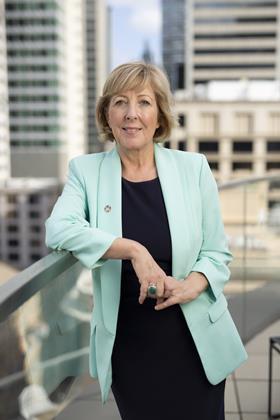By Fiona Reynolds, CEO, PRI

We have recently completed quarter one of the first business plan under our new three-year strategy, ‘Building a bridge between financial risk, opportunities and real-world outcomes.’ Alongside our core programmes on investment practices, stewardship and reporting and assessment, we are also working to support the evolution of the responsible investment industry.
This means that we are now focusing on our new flagship programmes for 2021-22, including projects on sustainability outcomes and the Sustainable Development Goals, climate action, fixed income, asset owners, driving meaningful data, human rights and active ownership 2.0.
Legal framework for impact
Responsible investment has come a long way over the past few decades. For the first time, we’re seeing signatories looking beyond the impacts of ESG risks on their portfolios to understand the impacts their portfolios have on the real world around them.
To help enable this shift, we are launching a new report on A legal framework for impact, authored by Freshfields Bruckhaus Deringer, and commissioned by The Generation Foundation, PRI and UNEP FI. The report provides legal analysis on how far investing for sustainability impact is legally required or permitted across 11 jurisdictions, current legal barriers to investing sustainability impact and options for policy reform. It represents a significant step forward in clarifying the role of investors in supporting sustainable and inclusive economic growth.
Climate action and asset managers initiative
Climate remains a critical theme for our signatories as they prepare for COP26 in Glasgow this November. We have seen encouraging action from investors on climate, with the Net Zero Asset Managers initiative growing to 128 investors managing US $43 trillion in AUM – all committed to the net zero goal. We are pleased to see this momentum with the investment community reaching a ‘net zero tipping point’–almost half of all assets across the global asset management sector are now part of the initiative.
We recently ran our penultimate webinar in the Investor action on climate series with LSEG titled Shifting the trillions: what data is needed? to build momentum ahead of COP26, focusing on what data investors need to re-allocate capital. One such area for investor action is biodiversity, with growing recognition of the value of nature and increasing understanding of our dependencies and impacts on the world around us.
Of course, the finance sector can’t tackle this challenge alone. Collaboration is the way forward, and in partnership with the Convention on Biological Diversity, Business for Nature, Finance for Biodiversity Pledge and UNEP FI, we have published a Financial Sector Guide for the Convention on Biological Diversity. The publication guides investors on actions that can be taken with businesses and policymakers to begin to move the needle on biodiversity ahead of the 15th meeting of the Conference of the Parties (COP 15) to the Convention on Biological Diversity taking place in Kunming, China, in May 2021.
Reporting pilot
The new pilot reporting framework closed on 10 May with 2771 investors and 300 service providers completing the framework. The development and launch of a new system of this level of complexity was a significant undertaking that we worked very hard on. We have received significant feedback from signatories which we are now working through. I again want to acknowledge and apologise for the difficulties that many of our signatories experienced during the reporting pilot.
With the start of this year’s cycle delayed by a month until 1 February, we anticipate some delays in the release of the 2021 reporting outputs as a result. We are working on detailed plans regarding the next steps for our reporting pilot. An update on timings for the release of reporting updates will be communicated to signatories in August.
Signatory update
Over the last quarter, PRI has added 327 global organisations as new PRI signatories, including 14 asset owners, with PRI signatories now representing over US $121 trillion in AUM.
Responsible investment has gone from strength to strength in emerging markets over the past few years, with 50% growth in the number of signatories headquartered there since 2020. In June, we welcomed Taikang Insurance Group as our 4000th signatory, along with its investment management subsidiary, Taikang Asset Management. We gain strength through our diversity, and recent growth in PRI signatories has been diverse in terms of both market segment and geography.
Moving on
Finally, as I communicated in a letter to signatories in June, with the new three-year strategy in place and the organisation in a strong position to carry its mission forward, I have decided to step down as CEO to return home to Australia.
The Board has formed a search committee led by Chair Martin Skancke to recruit my successor and has appointed recruitment firm Saxton Bampfylde to assist with the global search. They are aiming to fill the position by the year-end to enable a smooth transition and I will be staying on until the New Year to ensure continuity and facilitate a strong handover to my successor.
To register your interest in the CEO role please contact Natasha Stewart, Partner, Project Coordinator, Saxton Bampfylde on [email protected]. For any other queries about the search process please contact [email protected].
This blog is written by PRI staff members and guest contributors. Our goal is to contribute to the broader debate around topical issues and to help showcase some of our research and other work that we undertake in support of our signatories.Please note that although you can expect to find some posts here that broadly accord with the PRI’s official views, the blog authors write in their individual capacity and there is no “house view”. Nor do the views and opinions expressed on this blog constitute financial or other professional advice.If you have any questions, please contact us at [email protected].












